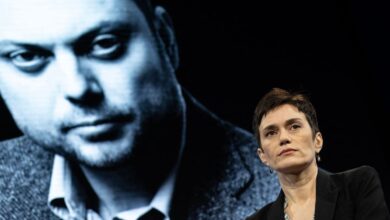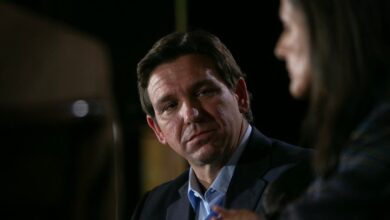‘A dead body talks if you ask the right questions’: Ex-war crimes investigator on the grim task facing experts in Ukraine

Ron Turnbull likes to say that a dead body can talk if you ask the correct questions of it.
The former Metropolitan Police officer also says that forensic experts and war crimes investigators – both of which he used to be – have a duty to ask these questions, as they examine human remains. Only then can they determine what befell that person, and in doing so, speak out on their behalf and secure some sort of justice.
“These people were treated inhumanely and they’re never going to have a voice,” he tells The Independent. “Our job was to give them that voice, and be able to determine how they were killed.”
He adds: “It’s the voice that the perpetrators of that death, disallowed them.”
Turnbull is now aged 74 and retired. For much of its career, he worked as a senior forensics investigator for the Met, the part of it that was known as the Flying Squad. (He was present, when the late actor John Thaw, visited the offices, tried to pick up dialogue before they filmed The Sweeney, based on the hard-knuckled detectives.)
Yet, for a decade, he was attached to United Nation’s teams investigating war crimes in the Balkans. For a time, he was part of the probe into the Srebrenica massacre, where up to 8,000 Bosnian Muslim men and young boys were killed by Serb forces under the control of Ratko Mladić.
Later, he helped recover the bodies of scores of Kosovans, also killed by Serb forces, and buried in mass graves close to the capital, Pristina.
In recent days, Turnbull, who lives in Hastings, on England’s south coast, has been speaking with his former colleagues about the alleged atrocities in Ukrainian cities such as Bucha. They all agree it feels very similar.
“I’ve been talking with these people, and we’ve been saying it’s like deja vu,” he says.
Turnbull, who in 2020 published a memoir From the Flying Squad to Investigating War Crimes, says the first priority in any investigation into a possible war crime, is to secure the scene and make sure any evidence is not contaminated.
In the Balkans, it was mainly Nato soldiers, who took over peacekeeping operations from the UN in 1995, who would secure the permitter of a site.
Then his team would set about gathering evidence, pictures or anything that could be of use.
In the case of a mass grave, they would fly over the site in a helicopter to get a simple aerial photograph to show the outlay of the area.
Crucially, they would then speak to witnesses or even survivors of such a killing.
“Some of them had actually gone through it themselves and been left for dead but survived. And you put those all together,” he says.
Ron Turnbull investigated war crimes in Bosnia and Kosovo
At the site of such killings, it was often possible to identify “shooting points”, where people had been lined up and executed. Bullet fragments can be recovered from trees or walls, spent cartridges collected from the ground.
Then the team started to examine the bodies, clambering into recently dug ground, for fragments of clothing or other identifying materials, or else clues that might indicate someone had been summarily executed, such a shot to the back of the head.
“At one or two of the scenes we went to, we found that quite a large number of the men had been gagged, had been blindfolded, had been tied, some of them with barbed wire, both ankles and wrists,” he says.
Every body is then carefully removed and a post-mortem examination carried out by a pathologist to rule out any possibility that someone had been killed in a car accident or some such.
Villagers in Kosovo watched as Ron Turnbull and his team examined mass grave site





